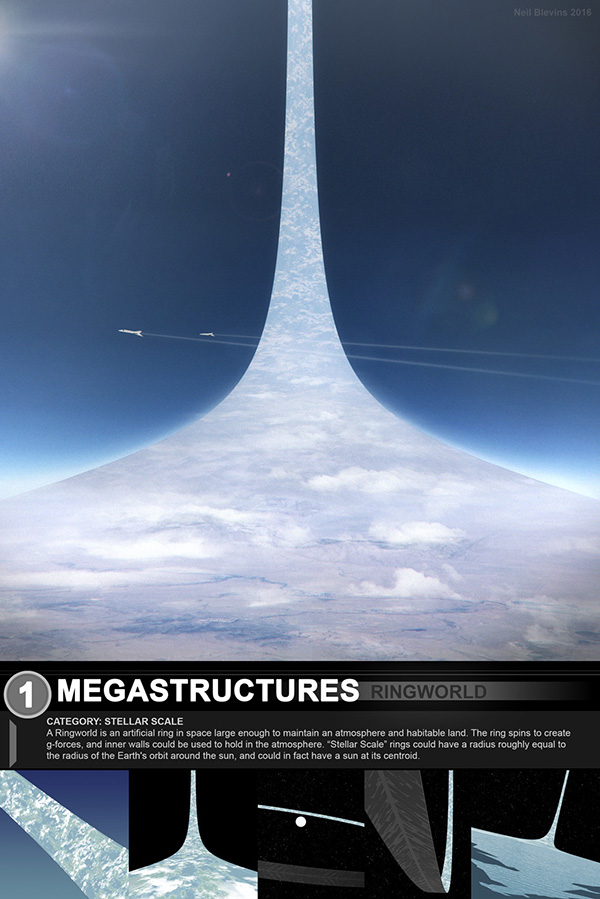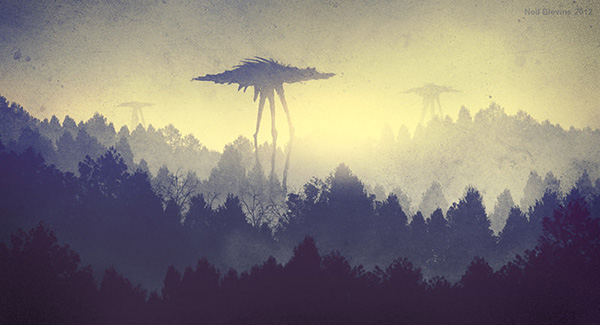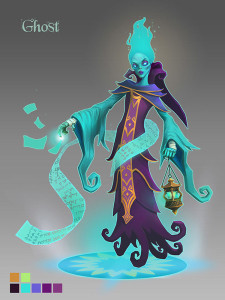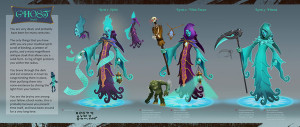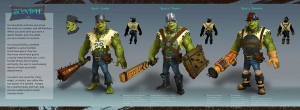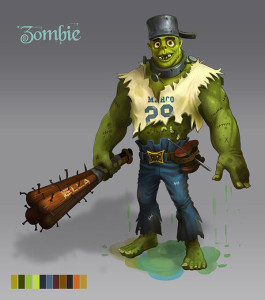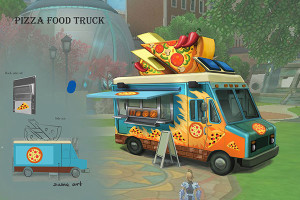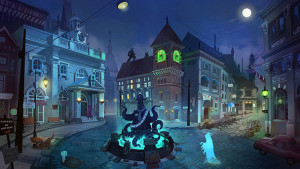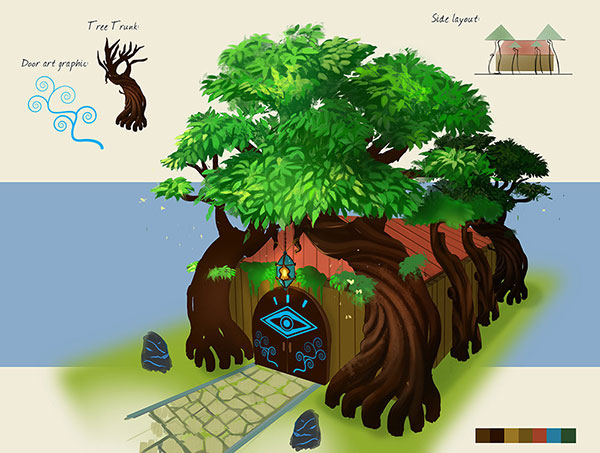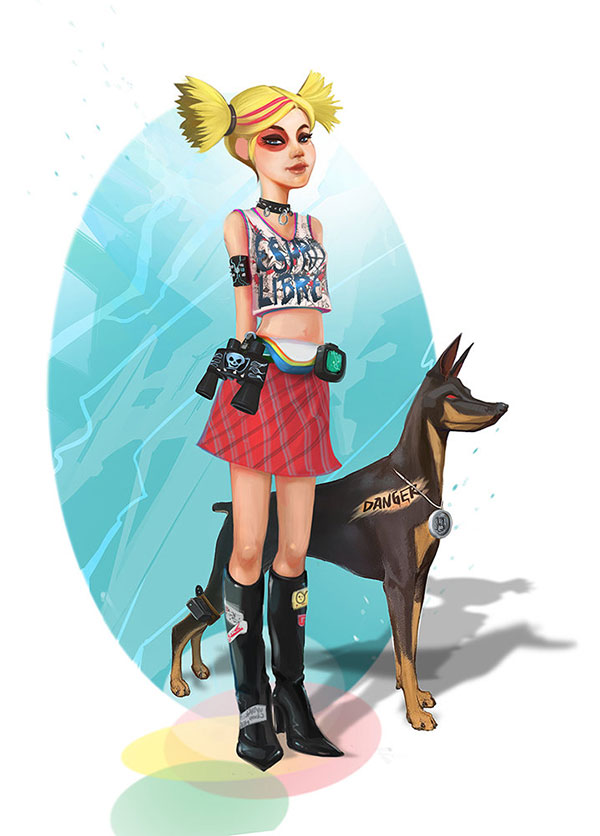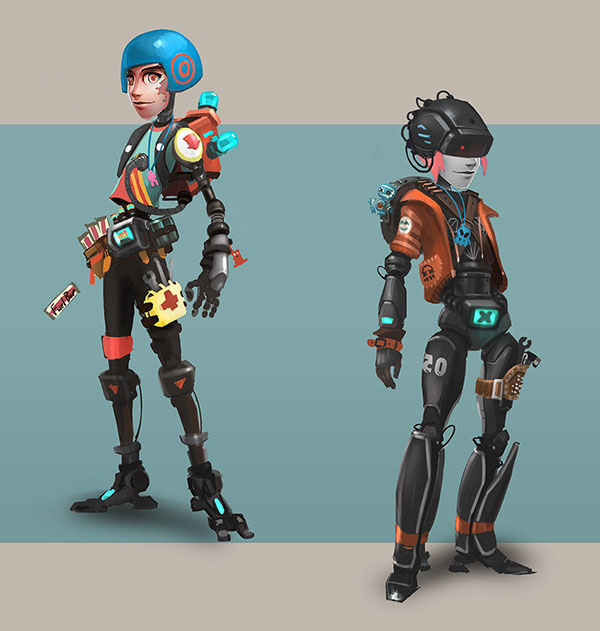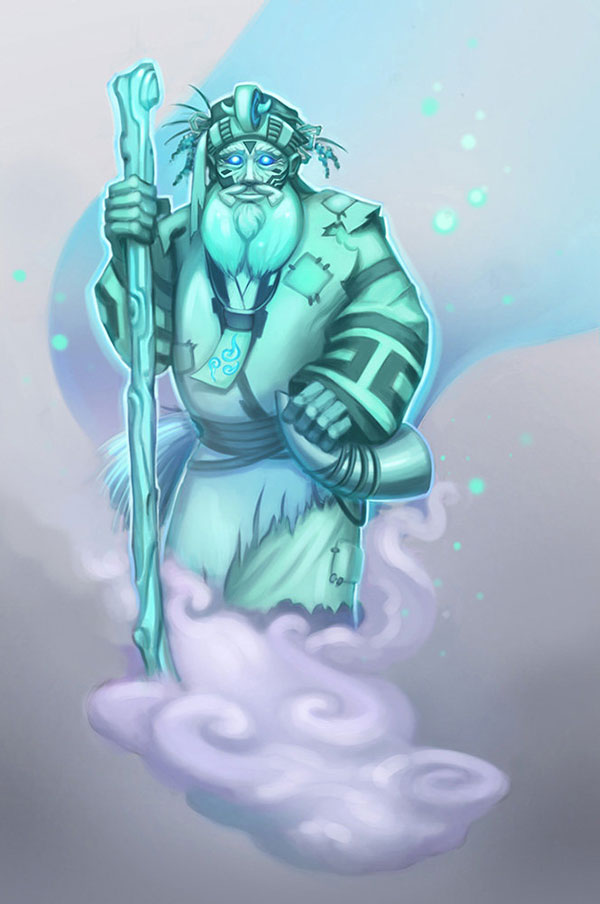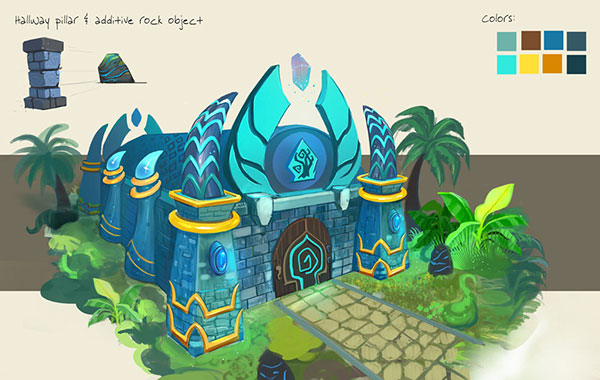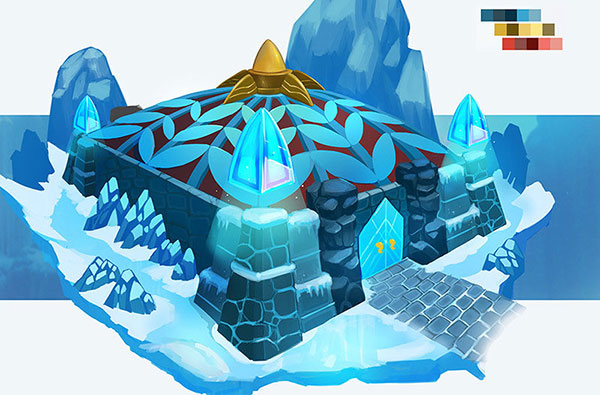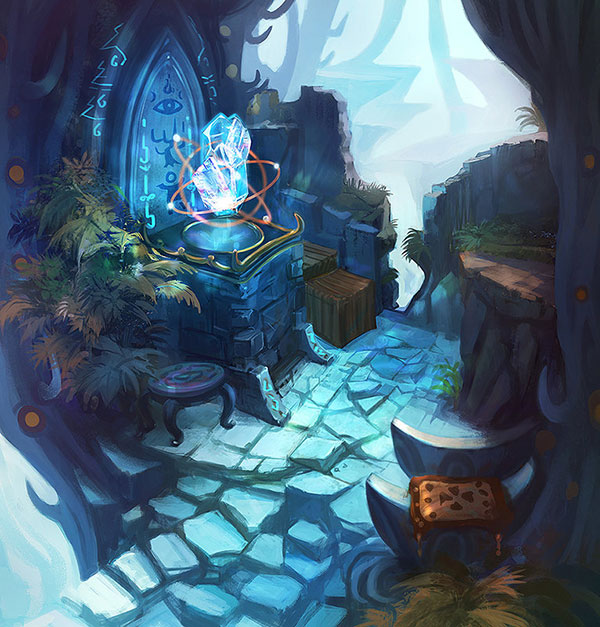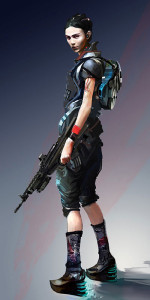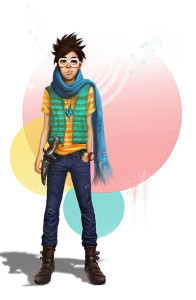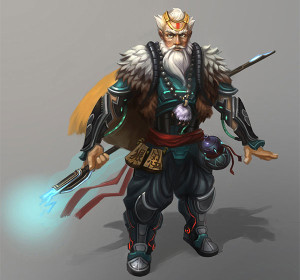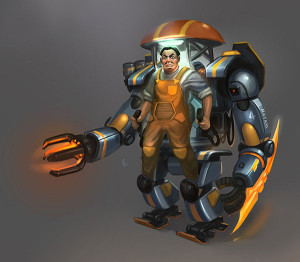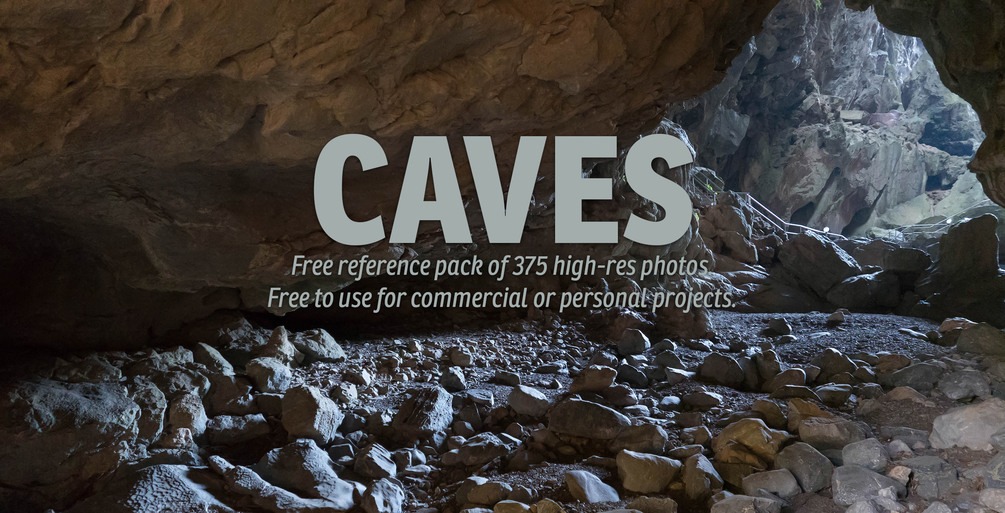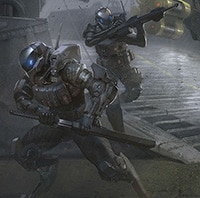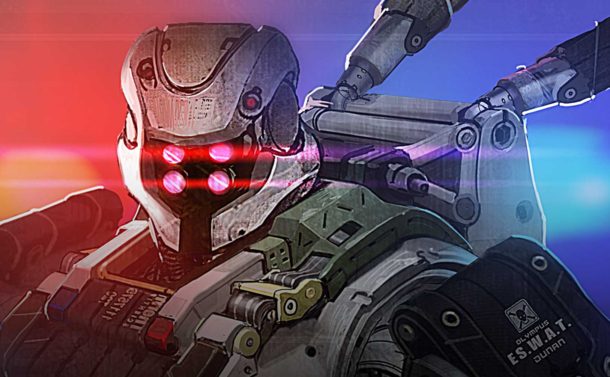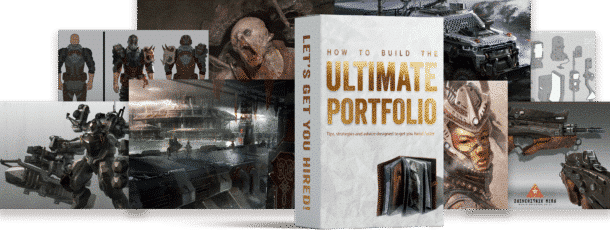
by Eliott Lilly | Mar 14, 2016 | Interviews
Neil Blevins is a veteran concept artist and illustrator with 17 years of experience working in the video game and entertainment industry.
Check out his Portfolio
Be on the lookout for Neil’s upcoming book: “The Story Of Inc” coming out this summer, http://thestoryofinc.blogspot.com/ http://www.facebook.com/thestoryofinc
Neils Blevins’s current portfolio examples:
If you haven’t already, be sure to check out Part One of this interview, where we asked him specific questions about what it’s like to be a concept artist in the entertainment industry, discussed some of the one-the-job challenges, as well as his educational background. Here, in Part Two of this interview, we ask Neil Blevins specific questions about building his portfolio, marketing himself in the industry and more. Here’s what Neil Blevins had to say:
HOW DID YOU STRUCTURE THE PORTFOLIO THAT LANDED YOU YOUR FIRST GIG? CAN YOU DESCRIBE THE TYPE OF WORK YOU HAD IN IT? WHAT STUDIO/ CLIENT WERE YOU APPROACHING-
So I started just as the internet was becoming a thing— In fact, it was CompuServe, and I participated on a number of forums there showing my artwork, not to get a job specifically (I was still in school), but more as a way to participate in the community, and get feedback as I tried out new digital tools. I would post still images, usually sci-fi, some robot or landscape, using 3D software and then hand painted in Photoshop over top. Then one day, Tim Miller from the company Blur in Venice CA, approached me online and said to keep them in mind once I finished school, they may be interested in hiring me. So in fact, my first job didn’t come from any sort of full portfolio, it just came from me participating in an online community.
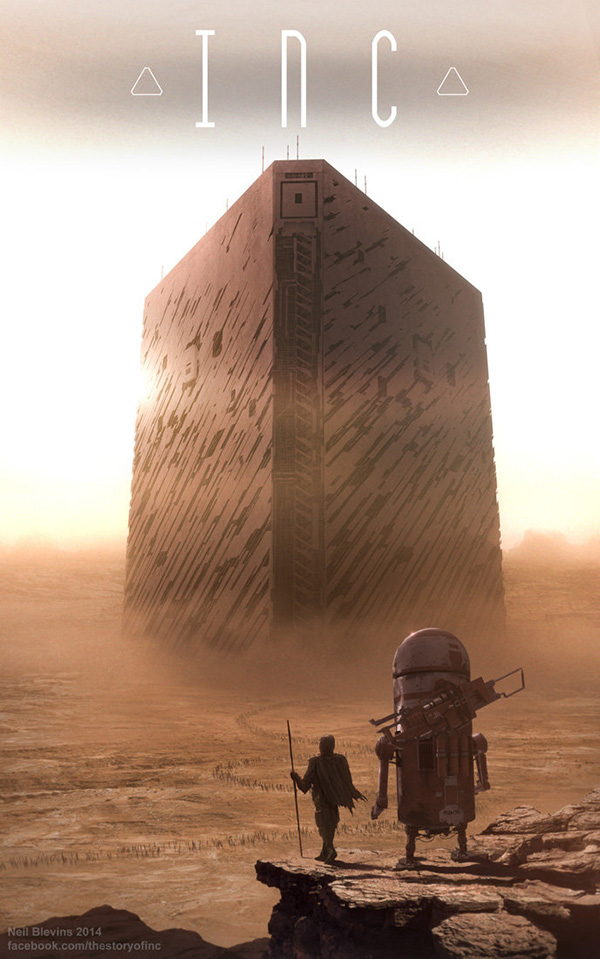
IF YOU WERE JUST STARTING OUT TODAY, AS AN INTERMEDIATE DIGITAL ARTIST, WHAT TACTICS WOULD YOU EMPLOY TO LAND A GIG INTO THIS INDUSTRY?
There are many many ways to get your artwork seen by the world at large. I’d certainly start with an online portfolio, say at Art Station or the like. I’d heavily participate in online communities, so people get to know you and your skills. While I haven’t done this much, if starting out, I’d also participate in real life events, where professional artists do workshops and such. Not only is it a great learning opportunity, but also a great place to network, and show people your work in real life.
WHAT QUALITIES DO YOU ASPIRE TO THAT DISTINGUISHES YOUR ARTWORK FROM OTHER ARTISTS? WHAT LED YOU TO DEVELOP THOSE QUALITIES? . WHAT ADVICE DO YOU HAVE FOR ARTIST WHO WANT TO OBTAIN A “STYLE” TO THEIR LOOK.
I didn’t plan on having a style, but I’ve made enough images it just kinda happened. My style usually includes a single figure or main focus, dramatic lighting, for the most part a single color palette, and a misty environment. I love making robots, when I make them, I try and focus on a single bold shape, with then tons of tiny details.
My style just came from me making image after image after image that interested me, and eventually a naturally gravitated towards a certain look.
But I am always trying to push that look as well in subtle ways. Most recently, I am trying to introduce more dramatic camera angles and a little more color complexity than a single color theme. In general, I don’t suggest trying to make a style, they usually grow organically from repetition, but if you do want to work at it, take some of your favorite artists, break down what elements you enjoy the most in their work, and then try and incorporate those things into your own work.
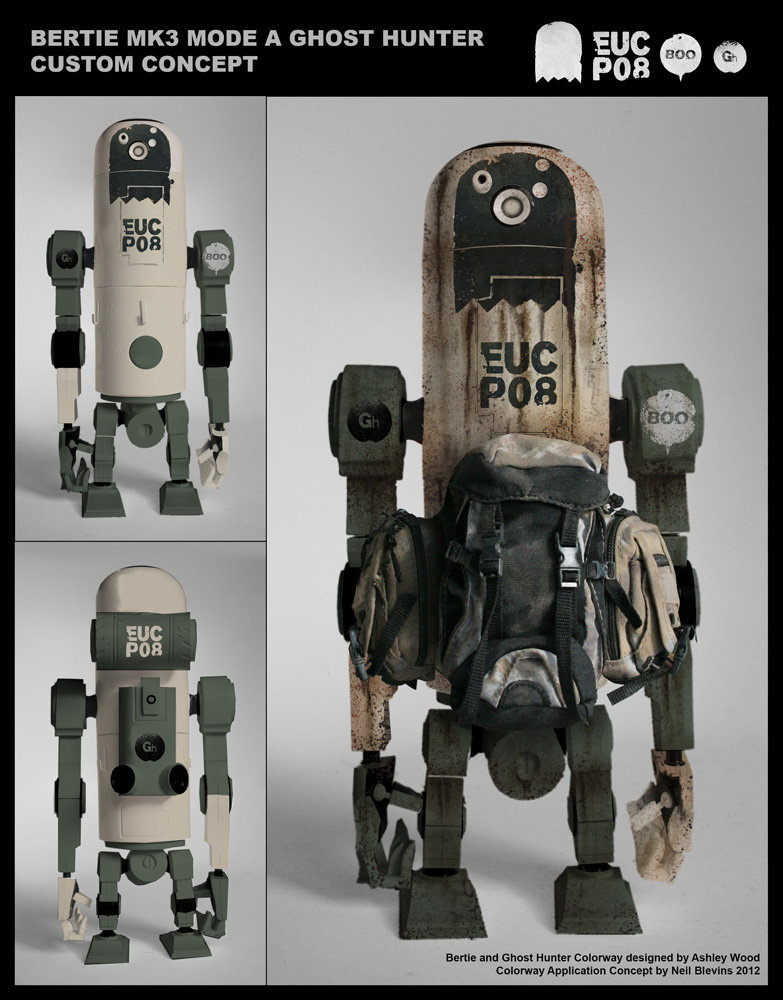
This concludes our interview with Neil Blevins. If you would like to read more, be sure to check out his Words Of Wisdom. All images used with permission @Neil Blevins.
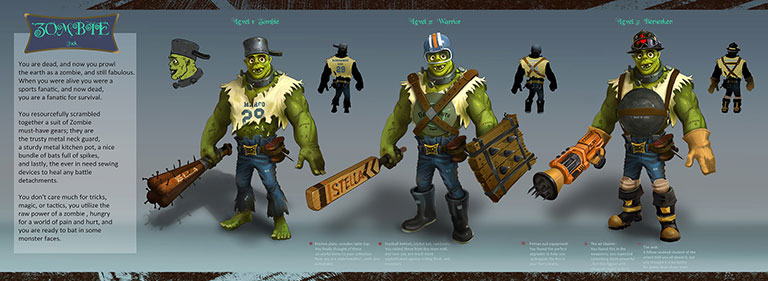
by Eliott Lilly | Mar 2, 2016 | Words of Wisdom
Kate Yu is a concept artist and illustrator working in the video game and entertainment industry.
Professional Portfolio and Blog
Educational background:
Attended The Guildhall at SMU, Majored in Art Creation, graduated 2007. Holds a degree in Video Game Development in Art Creation
Number of years in industry: 9
Projects worked on:Brothers in Arms, Borderlands, Fear 3, Wizard 101, Wizard of Oz slots
Kate Yu’s current portfolio examples:
WHAT’S THE MOST IMPORTANT PIECE(S) OF ADVICE YOU CAN OFFER STUDENTS THAT YOU WISH THEY HAD TOLD YOU IN ART SCHOOL?
I wish someone had suggested that perhaps, art is not meant for a career. In my experience, I’ve seen a lot of artists (including myself) who have grown jaded over time or whose style has become too mechanical because of this demanding industry. There is a real danger for those of us utilizing art for our careers, to “burn out” and the process of art creation to get less creative.
ARE YOU AS SUCCESSFUL AS YOU THOUGHT YOU WOULD BE AT THIS STAGE IN YOUR LIFE?
I think I am moderately successful, but, I don’t think I’ve had that many years of experience yet. If there’s one thing I’d tell my younger self to do differently, (even my current self, actually), is to be less lazy – you can always do more art!
AS AN ARTIST, WHAT DOES “SUCCESS” MEAN TO YOU AND, WHAT ARE AT LEAST THREE THINGS YOU NEED TO DO IN ORDER TO ACHIEVE IT? PLEASE LIST.
I think true success as an artist is that you are really, without self denial or ego, truly happy with your artistic creation – and that others are too. I think there’s only one thing that can get a person there; that is to constantly and continuously out-do yourself, and to keep pushing forward. Hopefully this brings you all the things that we all hope for, like cool jobs, great projects, prestige and recognition.
If you;d like to read more from Kate Yu, then check out her full interview. All images used with permission by the artist. ©Kate Yu.
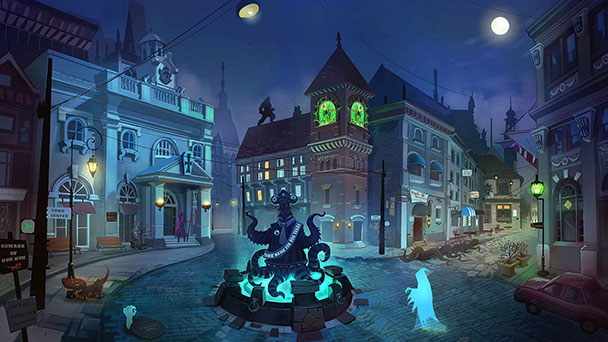
by Eliott Lilly | Feb 29, 2016 | Interviews
Kate Yu is a concept artist and illustrator working in the video game and entertainment industry.
Professional Portfolio and Blog
Educational background:
Attended The Guildhall at SMU, Majored in Art Creation, graduated 2007. Holds a degree in Video Game Development in Art Creation
Number of years in industry: 9
Projects worked on:Brothers in Arms, Borderlands, Fear 3, Wizard 101, Wizard of Oz slots
Kate Yu’s current portfolio examples:
In this interview, we asked Kate Yu specific questions about what it’s like to be a concept artist in the entertainment industry, discuss some of the one-the-job challenges, as well as her educational background. We also discuss with Kate her Dos and DONTs of portfolio building, how she branded and marketed herself in the beginning, and much more.Here’s what she had to say:
HOW OLD WERE YOU WHEN YOU DECIDED TO COMMIT TO BEING AN ARTIST? WHAT WERE YOUR MOTIVATIONS/ INSPIRATIONS?
I think I was 20 years old when I decided to be an artist for the video games industry. Graphic fidelity was constantly improving each year and my favorite games at that time, (like Never Winter Nights, Diablo, Syberia) really started to look amazing. My love of these games, became the motivation behind researching more about their development process, and boom!, I was sold on becoming a concept artist.
WHAT DO YOU LIKE MOST ABOUT YOUR JOB? WHAT DO YOU FEEL ARE THE BIGGEST CHALLENGES?
I think my biggest realization is that the game industry is an industry of business.
As a “green” artist fresh out of school, I was excited for the small dev team feel, the passion in the projects, and the ownership of my creation, but, once I got into the industry I realized that in reality, this is not always the case. At the end of the day,each studio will have it’s own culture that you will have to deal with because each project needs to secure financial backing. I’ve learned a lot about the business and what it means for the creatives, but, if I had to choose again, I still wouldn’t want to be in any other industry.
CAN YOU SHARE A PERSONAL STORY, ABOUT A HARD LESSON THAT YOU LEARNED, THAT COULD HAVE BEEN AVOIDED, HAD YOU BEEN BETTER INFORMED?
I was working passionately hard for this company and it’s game- frequently keeping late hours doing anything and everything that was needed. After doing this for three years I became really worn out, and despite my efforts,the project looked like it was going no where. So I decided to leave the studio. This decision upset the company heads and when the game did finally ship, years later, they denied me full credits for my efforts on the project.
Be really sharp about the company culture you are working for, and always think objectively before you make any sudden moves. This is still a business and being an artist in my opinion needs to learn how to tactfully watch out for his/her interests.
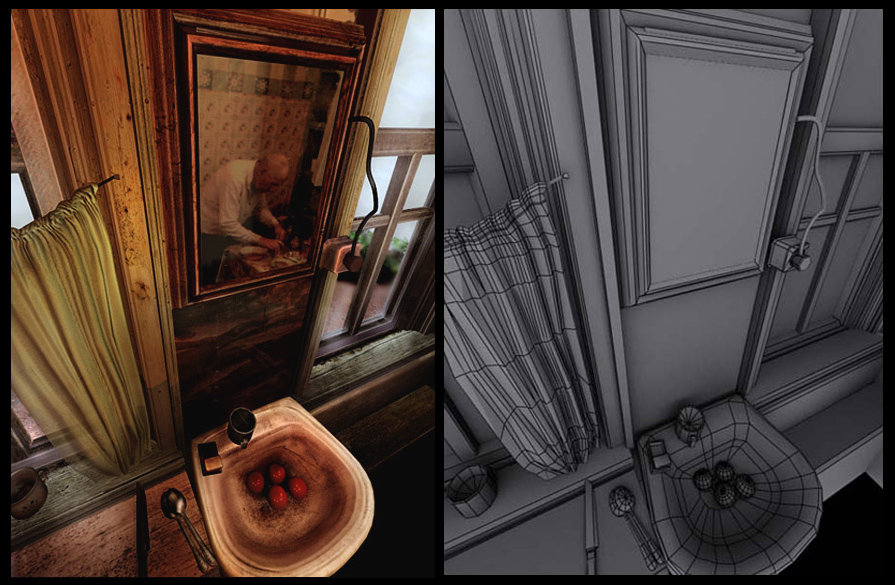
An example of Kate’s Student work
IN THIS DAY AND AGE OF INEXPENSIVE AND EASILY ACCESSIBLE ONLINE TRAINING MATERIALS HOW VALUABLE DO YOU BELIEVE, GETTING AN EDUCATION FROM A UNIVERSITY OR COLLEGE WILL BE FOR ASPIRING ARTISTS WHO WANT TO BREAK INTO THE ENTERTAINMENT INDUSTRY?
I will always support educational institutions, because they facilitate great spaces for student- teacher interactions as well as student- student interactions. These institutions can also provide facilities that you won’t otherwise have access to. That said, I also recognize that institutions are getting more expensive, and the specialty trade schools often come with jaw dropping price tags.
The good news is that in the game industry, most studios don’t require you, the artist, to have a diploma, so if you are able to find great materials online and you are a talented hard worker, then you will go far.
The bad news is that for a new artist, the internet resources can be daunting to sift through, you maybe getting some terrible advice and you won’t even know it. I suggest that if you choose to go to a school, then heavily research the credibility of the school, and most importantly, know what kind of a student you are- then go find the best place that fits your personality and your financial capability.
DID YOU HAVE ANY OUTSIDE HELP PUSHING YOU ALONG WITH YOUR TRAINING?
I’ve had a lot of help from fellow artists, and I’ve learned a lot by sharing techniques and seeing how other artists tackle their problems. I’ve worked with a few senior concept artists in the industry who provided me with their mentorship, and I think this is the most important thing to have as an artist.
Artists should choose good mentors no matter what schools they go to or studios they work for. In return, I believe artists should try to provide good mentorship to other artists and keep the good vibes going.
ARE THERE ANY CLASSES YOU TOOK IN SCHOOL WHICH SURPRISINGLY HELPED YOU IN THE LONG RUN MORE THAN YOU THOUGHT THEY WOULD?
I remember how much the sculpture class helped me see shapes 3 dimensionally and improved my feel for perspective.
HOW DID YOU STRUCTURE THE PORTFOLIO THAT LANDED YOU YOUR FIRST GIG?
I always try to have work in my portfolio that in some way caters to the studio I’m applying for. For my first gig, with GearBox software, working under people like Randy Pitchford, I had some mechanical designs, general environment concepts, and a lot of environment 3D models because they were making Brothers in Arms at the time.
HOW DID YOU HUNT DOWN YOUR FIRST JOBS IN THE INDUSTRY?
My school helped me land my first gig. We had student show cases and career days where we were able to speak to the recruiters from various companies. My advice for artists who do not have these events is to promote their work on online art galleries and to check out Indeed.com, which in my opinion, hosts the most current, up to date and complete available job listings for game developers.
HOW DO YOU CURRENTLY PROMOTE YOUR ARTWORK?
I’m not a very prolific self promoter- I only have a website that I update as needed. However, a lot of my artist colleagues promote themselves by entering into contests, or print out their work and show them at major industry conferences. I even have a group of friends who branched out into creative books such as art books, comics, or children’s book illustrations. Another channel is to get involved in freelance projects on the side. I think these are all really good self-promoting channels artists can consider.
This concludes our interview with Kate Yu. If you would like to read more from Kate, be sure to check out her Words Of Wisdom, later on this week. All images used with permission by the artist. ©Kate Yu.

by Eliott Lilly | Feb 17, 2016 | Questions
Question submitted by Noel P.
I’m currently learning Google Sketchup. Would that be adequate for the industry?

Your question “What software should I use?” is one I get asked a lot. The short answer is “Yes, Sketchup is a good program to know”.
The longer answer would be:
Well it depends on your intent. If you want to use a 3d program to help you with your designs, perspective, etc, then any program that you are familiar with, will be a powerful addition to your skill set. Google Sketchup was designed mainly for architects, and therefore has its limits, but if you can get the results you are after from it, then its worth while. Plus the program is ever evolving and improving, so who know what other features will be added down the line.
If your intent was to learn the tools that the professionals use when developing a video game, then you may be better off learning industry standard software like Max, Modo, and Maya to name a few. That said, I should also point out that there is no actual “industry standard”. Since the software used varies from shop to shop, the only way to know which studio uses which software is to do some research on a prospective studio (and even then, getting answers can be difficult, and the studio may shift software at any time).
Honestly, since nothing is really guaranteed, the best you can hope for when using a 3D program is to understand the core concepts of 3d modeling and be able to retain them across multiple programs. Obviously the more programs you know, then the more you can do, so knowing multiple programs is the best solution.
Hope that helps





